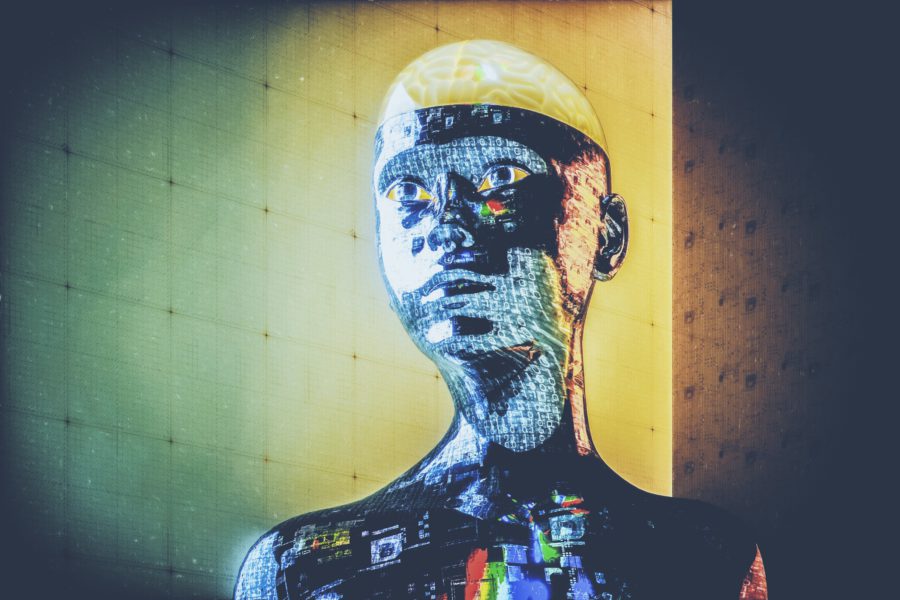According to the popular definition, the mind is awareness of the external and internal environment. And since machines are nominally aware of the environment, then perhaps we should recognize this as rationality …

Original material by Jaishri Pandya
Despite the fact that neurobiology has taken a big step forward in its development, the origin of consciousness in humans, as well as its nature and processes, remain largely unknown. The underlying physiological mechanisms of the creation of intelligent beings are not yet fully understood. Yet, thanks to advances in brain mapping and science in general, we may be much closer to a definitive understanding of the fundamentals of intelligence in humans than ever before.
It is believed that we are unable to create what we cannot realize. It is not easy to understand the very nature of the human mind, but great efforts are being made to create a computer mind based on neuromorphic computer processors. For obvious reasons, anxiety is growing and a lot of questions arise regarding the creation of an active mind with the help of such processors, because there is little clarity about the human mind and the very nature of consciousness, let alone a computer mind.

At this stage, we can form an idea of the human brain as a computer and compare it with functional computer systems. For many years we have asked ourselves: how aware of the external and internal environment of machines? Are they really conscious? Are there self-conscious machines? The answers to these questions raise even more confusion, because comparing the 'consciousness' of computers and the mind of humans is much more complicated than we expected.
Consciousness in machines is, by and large, equated with possession of knowledge or behavior in actual situations. It seems that the properties of consciousness are not necessarily related to biological processes. They are functional.
The relationship between input, output, and the state of a computer system itself is based on causation. It is these functional properties and the ability to know and understand their own internal characteristics and external environment that make the machines workable, intelligent, knowledgeable in the environment and self-aware.
Of course, definitions and understandings differ, but self-awareness is a process of assessment that includes the collection of information and the skills to process it. Consciousness in cars today can be considered as having an understanding of one's existence and the world around: such things as perception, sensations, feelings, memories, and so on. Since the mind fits into the psychology of consciousness, we can say that machines are conscious.
Intelligent machines
Researchers at Columbia University claim to create a robotic arm that can recreate its image from scratch, which is a definite step towards self-awareness. Let's assess today's reality. Every computer and every machine with an Internet connection has an identifier in the form of an IP address, just like people have a home and digital address. The fact that each machine 'knows' about its ecosystem, IP address, location, and other parameters is already evidence of intelligence. We can see how evolving voice assistants such as Siri, Alexa and Google can already have simple conversations with people.

Like humans, machines need to be aware of their behavior. As we have already determined, computers and machines a) are aware of the environment and b) in this awareness – rationality, that is, it is quite possible to draw a conclusion about the self-awareness of computers, because it does not require biological awareness.
Moreover, mindfulness is about the ability to think, and self-awareness is about understanding the fact of the thought process. Computers and machines have better memory compared to people, because we do not always remember everything, and also do not remember absolutely all actions and meetings. And this brings us to an important question: if machines are better at gathering information, have comparatively better analytical skills, performance and memory, then can they think better than humans?
Thinking machines
Another important point: Do machines think? On the one hand, does a machine run simply by performing tasks by monitoring symbols it does not understand? And if machines both understand what they are doing and are aware of the tasks being performed, is this thinking? The answers to these questions completely depend on how we understand thinking, consciousness and self-awareness in machines. Be that as it may, a generally accepted understanding of the consciousness of a person or a machine does not yet exist, so it might be time to start discussing a single interpretation of these concepts in order to evaluate and understand the fundamental foundations of consciousness.
Consciousness of machines
How to define and understand consciousness in machines? Is it worth comparing it with the human? As we discussed, there is no centralized understanding of consciousness. While neuroscience hypothesizes that consciousness in humans is generated through the interaction of different parts of the brain, similar structural interactions between the components of machines or computers can be used to suggest that there is consciousness in machines.
We have to answer a number of important questions:
- What are the most important ranges and mechanisms of consciousness of machines?
- What is its function?
- How do you measure machine intelligence?
- What are the mechanisms for the manifestation of consciousness in a car?
- Under what conditions can a machine be called intelligent?
Original material by Jaishri Pandya
Of course, it is better to first deal with the human mind and only then talk about artificial intelligence. All the signs of 'reason' are present, but there are still more questions than answers. Simply performing tasks is not enough, because the computer does this not at will, but by 'order', the command that the person has laid, and the criteria of 'understanding' and 'consciousness' may not be applicable at all in this context, even despite the author's seemingly logical calculations . And, in my opinion, it is better to look for answers not in philosophy, but in scientific justification and theoretical basis.
In general, even a not very intelligent machine is enough to properly spoil the nerves of a truly intelligent species, this is no secret to anyone.
